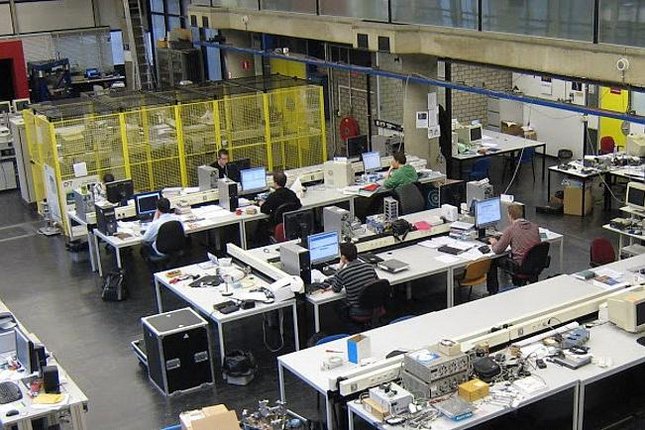
he DCT laboratory is a joint laboratory of the Control Systems Technology and Dynamics and Control groups. It provides a combined educational and research facility for MSc and PhD student projects. Laboratory facilities are regularly replaced by newer set-ups to warrant a state-of-the art laboratory for research that also accommodates today鈥檚 educational needs. In the past years a large variety of test set-ups has been exploited in the DCT laboratory. Some of the equipment is replaced over time by newer facilities or, depending on the project, have been removed. The technical staff (mechanical and electrical) provide support and create a stimulating environment for PhD and MSc students to carry out experiments in the DCT lab. The real-time hardware, data acquisition and measurement equipment includes dSpace and Beckhoff systems, SigLab measurement systems as well 果冻传媒 DACS systems that enable students to use their own notebook computers as real-time control processors.
Examples of our Research:
Fault Detection and Isolation
Researchers affiliated with 果冻传媒 with Control Systems Technology (CST) 果冻传媒 and TU Delft have made a key step towards fault detection and isolation (FDI) systems, which serve as a fundamental tool for production equipment. The created online monitoring systems are built upon traditional paradigms and models used in the field of control theory. They allow engineers to directly pinpoint the origin of anomalous behavior, distinguish faults from disturbances and system variability, optimally scheduled maintenance and control reallocation to other actuators. The developed inexpensive and online monitoring systems significantly increase uptime and therefore the economic value of existing and next-generation production equipment.
Experiments performed in the Motion Control Lab greatly contributed to these and similar innovations.
Iterative Learning Control
Researchers affiliated with 果冻传媒 with Control Systems Technology (CST) have used the Canon flatbed printer as a development model to develop Iterative Learning Control.
Using data on past errors, an approximate model can be learned to reduce the remaining error within a few iterations.
Experiments performed in the Motion Control Lab greatly contributed to these and similar innovations.
Experimental setups
LAB USAGE
The following sections all use the facilities of this Laboratory.
Contact us
-
Tom Oomen
Management Assistant Office